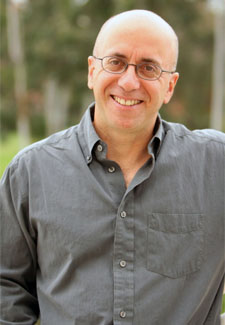Minimum wages and living wages

Minimum wages and living wages
- August 13, 2013
- Research evidence from Chancellor's Professor Neumark in the public debate
-----
 Given the persistence of poverty in the United States, policymakers justifiably struggle
with the design of policies to reduce it and increase economic resources of low-income
families. A number of recent developments – including President Obama’s proposal to
raise the federal minimum wage, Senator Harkin and Representative Miller’s proposal
to raise it even higher, a recent bill in Washington, DC to impose a $12.50 living
wage on Wal-Mart and other big-box stores, and the recent wave of fast-food strikes
in New York, Chicago, Detroit and elsewhere – have again thrust attention on using
a higher minimum wage to combat poverty.
Given the persistence of poverty in the United States, policymakers justifiably struggle
with the design of policies to reduce it and increase economic resources of low-income
families. A number of recent developments – including President Obama’s proposal to
raise the federal minimum wage, Senator Harkin and Representative Miller’s proposal
to raise it even higher, a recent bill in Washington, DC to impose a $12.50 living
wage on Wal-Mart and other big-box stores, and the recent wave of fast-food strikes
in New York, Chicago, Detroit and elsewhere – have again thrust attention on using
a higher minimum wage to combat poverty.
The idea behind the minimum wage is simple and appealing: If we force up the wages paid to low-wage workers, then low-wage workers will earn more income, and the low-income families in which low-wage workers live will be better off. However, economists have long pointed out that things aren’t so simple. When the government forces up the wage by imposing a minimum, employers are likely to respond by hiring fewer workers – in much the same way that consumers economize on gasoline when the price rises at the pump, or buy fewer cigarettes when taxes on them are raised. This prediction is confirmed by empirical research. In particular, although economists and others still argue the point, scores of studies show that minimum wages reduce employment of the young, low-skilled people whose wages are most affected by the policy.
Minimum wages might nonetheless be effective at reducing poverty if the predicted job loss for some is more than offset by the increases in income for others. However, the minimum wage does not effectively target benefits to poor families because many low-wage teenagers and young adults are in higher-income families, and many poor families have no workers. In recent data, 34 percent of minimum wage workers were in families with incomes exceeding three times the poverty line (roughly the top half of the income distribution), while only 17 percent were in poor families. As a consequence, it is very difficult to find evidence that minimum wages reduce poverty.
One of the main goals of the Center for Economics & Public Policy is to help inform public policy debate with evidence from economic research. In the four links below – three from National Public Radio and one from the BBC – David Neumark, Chancellor’s Professor of economics and director of the Center for Economics & Public Policy, discusses what the research has to say about proposals to raise the federal minimum wage, the proposed big-box living wage in Washington, DC, and the fast-food strikes.
Living wage, courtesy of NPR
Fast-food strikes, courtesy of NPR
Living wage, courtesy of BBC
Minimum wage, courtesy of NPR
Living wage, courtesy of NPR
Minimum wage, courtesy of WHYY Radio
Minimum wage, courtesy of WERS Radio
-David Neumark, Economics Chancellor's Professor and Center for Economics & Public Policy Director
-----
Would you like to get more involved with the social sciences? Email us at communications@socsci.uci.edu to connect.
Share on:
Related News Items
- Careet RightNotes from a future professor
- Careet RightCan Opportunity Zones ever meet their poverty-fighting promise?
- Careet RightFei Yuan named one of ten global China Times Young Scholar Fellows
- Careet Right'Wired for Words: The Neural Architecture of Language,' an excerpt
- Careet RightEveryone's looking for a partner who has these 3 traits, according to research


